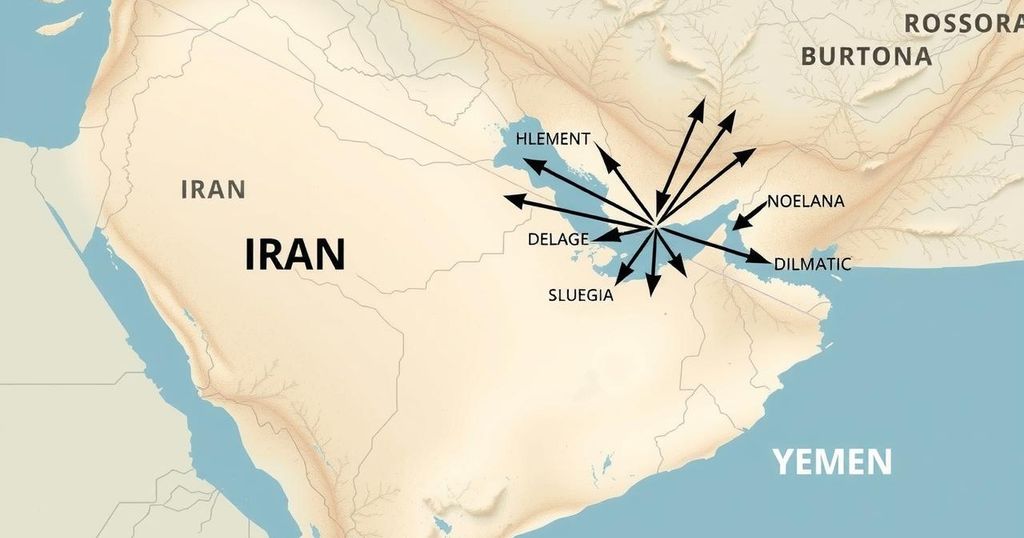Iran has denied aiding Yemen’s Houthi rebels after U.S. airstrikes, which killed at least 31 people. President Trump warned Iran would be held accountable. The Houthis have targeted shipping amid the Israel-Hamas conflict, and the U.S. claims Iran provides military support. Iran’s leaders have rejected these claims, asserting no influence over Houthi actions, as tensions escalates.
On Sunday, Iran formally denied allegations of providing support to Yemen’s Houthi rebels following a series of U.S. airstrikes directed at the group. This response was prompted by President Donald Trump’s assertion that Tehran would be held “fully accountable” for its actions related to the Houthis. The Houthi-controlled Health Ministry reported that the recent airstrikes resulted in the deaths of at least 31 individuals, including women and children, with over 100 others injured.
The Houthis have been known to target international shipping within the Red Sea and have launched missiles and drones towards Israel, citing these attacks as acts of solidarity with Palestinians in Gaza, where tensions have escalated due to the ongoing conflict with Hamas. While such attacks diminished during a temporary ceasefire established in January, the Houthis have threatened to renew them in light of Israel’s recent humanitarian blockade on Gaza.
The United States has long accused Iran of providing military support to the Houthis. U.S. Navy operations have reportedly intercepted Iranian-made missiles and weapons intended for the militants, who have taken control of Yemen’s capital, Sanaa, and its northern regions. General Hossein Salami, the commander of Iran’s Revolutionary Guard, reiterated that the country does not influence the operational strategies of its allied militant groups in the region.
Abbas Araghchi, Iran’s Foreign Minister, called on the U.S. to cease its military actions and claimed that Washington cannot dictate Iran’s foreign policy. Meanwhile, President Trump indicated that the U.S. would employ “overwhelming lethal force” if the Houthis did not terminate their assaults on maritime activities.
The airstrikes took place shortly after the Houthis announced their intent to resume attacks on Israeli vessels in the Yemen region. Previously, the Houthis had targeted over 100 merchant ships, resulting in the sinking of two and fatalities among four sailors. Notably, this marked the first U.S. military action against the Houthis during the Trump administration’s second term.
In summary, the tension between the United States and Iran has intensified as Iran denied its support for the Houthi rebels following U.S. airstrikes. The Houthis have actively targeted shipping routes in response to the conflict in Gaza, prompting U.S. military intervention. Amidst these heightened hostilities, Iran’s officials maintain that they do not influence the operations of regional militant groups. The situation continues to evolve, particularly amid threats of renewed attacks by the Houthis.
Original Source: www.ksat.com






